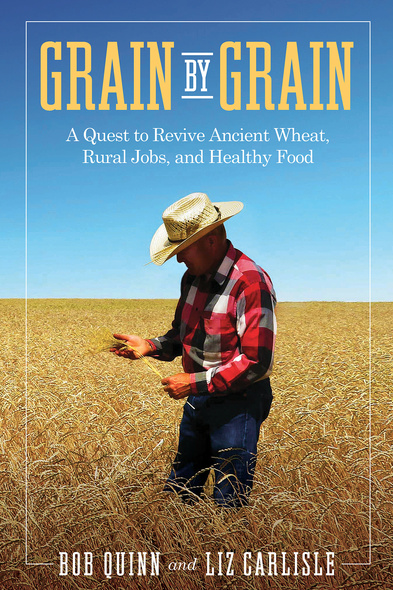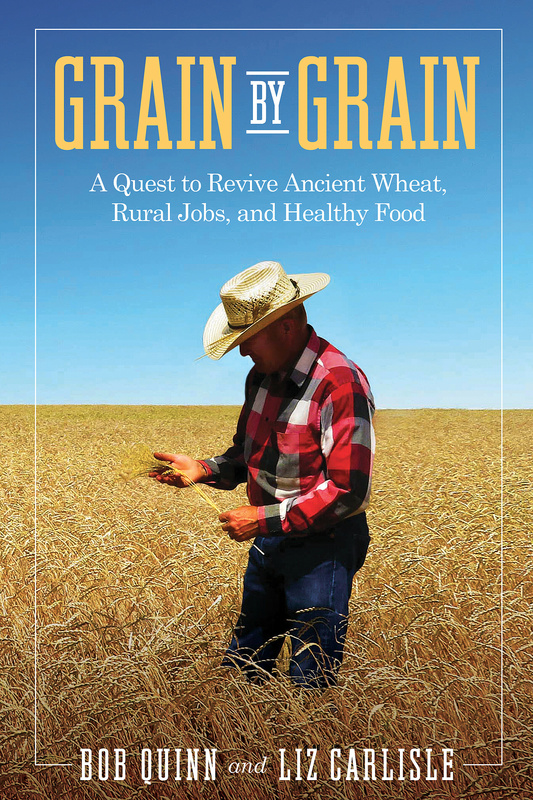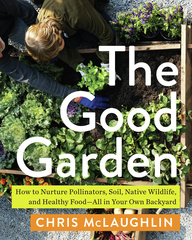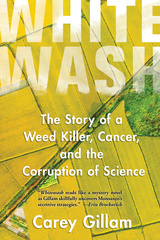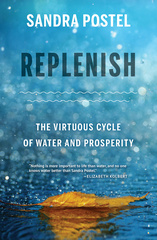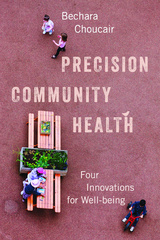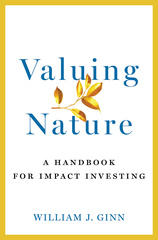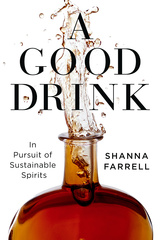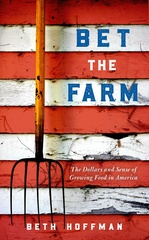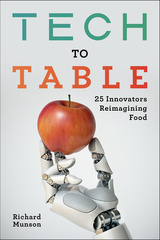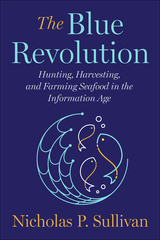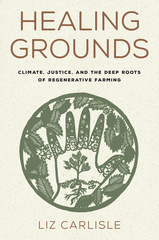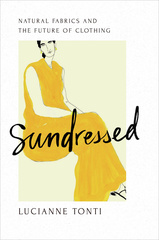Grain by Grain
A Quest to Revive Ancient Wheat, Rural Jobs, and Healthy Food
By Bob Quinn and Liz Carlisle
Island Press
"A compelling agricultural story skillfully told; environmentalists will eat it up." - Kirkus Reviews
When Bob Quinn was a kid, a stranger at a county fair gave him a few kernels of an unusual grain. Little did he know, that grain would change his life. Years later, after finishing a PhD in plant biochemistry and returning to his family’s farm in Montana, Bob started experimenting with organic wheat. In the beginning, his concern wasn’t health or the environment; he just wanted to make a decent living and some chance encounters led him to organics.
But as demand for organics grew, so too did Bob’s experiments. He discovered that through time-tested practices like cover cropping and crop rotation, he could produce successful yields—without pesticides. Regenerative organic farming allowed him to grow fruits and vegetables in cold, dry Montana, providing a source of local produce to families in his hometown. He even started producing his own renewable energy. And he learned that the grain he first tasted at the fair was actually a type of ancient wheat, one that was proven to lower inflammation rather than worsening it, as modern wheat does.
Ultimately, Bob’s forays with organics turned into a multimillion dollar heirloom grain company, Kamut International. In Grain by Grain, Quinn and cowriter Liz Carlisle, author of Lentil Underground, show how his story can become the story of American agriculture. We don’t have to accept stagnating rural communities, degraded soil, or poor health. By following Bob’s example, we can grow a healthy future, grain by grain.
When Bob Quinn was a kid, a stranger at a county fair gave him a few kernels of an unusual grain. Little did he know, that grain would change his life. Years later, after finishing a PhD in plant biochemistry and returning to his family’s farm in Montana, Bob started experimenting with organic wheat. In the beginning, his concern wasn’t health or the environment; he just wanted to make a decent living and some chance encounters led him to organics.
But as demand for organics grew, so too did Bob’s experiments. He discovered that through time-tested practices like cover cropping and crop rotation, he could produce successful yields—without pesticides. Regenerative organic farming allowed him to grow fruits and vegetables in cold, dry Montana, providing a source of local produce to families in his hometown. He even started producing his own renewable energy. And he learned that the grain he first tasted at the fair was actually a type of ancient wheat, one that was proven to lower inflammation rather than worsening it, as modern wheat does.
Ultimately, Bob’s forays with organics turned into a multimillion dollar heirloom grain company, Kamut International. In Grain by Grain, Quinn and cowriter Liz Carlisle, author of Lentil Underground, show how his story can become the story of American agriculture. We don’t have to accept stagnating rural communities, degraded soil, or poor health. By following Bob’s example, we can grow a healthy future, grain by grain.
A compelling agricultural story skillfully told; environmentalists will eat it up.'
Those looking for food systems reading material, whether for an introductory course or general interest, will find that this book’s smooth and effective navigation of ecology, history, sociology, and political economy provides a comprehensive overview of agriculture in America as well as a provocative questioning of conventional farming.'
In the age of start-ups and tech crazes, it might seem counterintuitive to call something as ancient as grain 'revelatory.' Nevertheless, Bob Quinn's quest to recapture the value of our food system through grain is just that—a revelation. Liz Carlisle and Bob Quinn have unlocked the key to kickstarting change—Grain by Grain is one big kernel of truth.
It is a fun book to read, written at an easy conversational level, and provides a lot of useful information. It should be a good addition to anyone exploring the food movement toward sustainable and organic farming and could be useful reading yoked to critical analysis of this approach as part of a university course focused on food production.’
Grain by Grain is a book for our times, one that demonstrates alternatives to help diversify agriculture, develop more resilient systems, and stimulate rural economies in a future with uncertain economic and climatic conditions. It is a must-read resource for those in agriculture who suffer from the pains of trade wars and tariffs, negative environmental spin-offs from chemical technologies, and narrow focus on a few major commodity crops. The book outlines
a thoughtful entrepreneurial process for designing and implementing a diverse and economically viable future for agriculture and rural areas.
Farmer and plant biochemist Bob Quinn's passionate story makes it impossible to go on farming (or eating) as usual. A must-read for anyone who wants to understand why our food system is so unhealthy and how we can fix it.
Long before anybody heard the term social enterprise, a few untrained businesspeople started small, unconventional companies to solve problems for their neighbors—and succeeded beyond their wildest dreams. This is the story of one such entrepreneurial effort, which demonstrates how a green economy rooted in regenerative organic agriculture and renewable energy can help rebuild struggling communities in rural America.
A compelling personal story that takes the wind out of the war on wheat and charts a course for getting rural America off the agrochemical treadmill.
A compelling agricultural story skillfully told; environmentalists will eat it up.'
Those looking for food systems reading material, whether for an introductory course or general interest, will find that this book’s smooth and effective navigation of ecology, history, sociology, and political economy provides a comprehensive overview of agriculture in America as well as a provocative questioning of conventional farming.'
In the age of start-ups and tech crazes, it might seem counterintuitive to call something as ancient as grain 'revelatory.' Nevertheless, Bob Quinn's quest to recapture the value of our food system through grain is just that—a revelation. Liz Carlisle and Bob Quinn have unlocked the key to kickstarting change—Grain by Grain is one big kernel of truth.
It is a fun book to read, written at an easy conversational level, and provides a lot of useful information. It should be a good addition to anyone exploring the food movement toward sustainable and organic farming and could be useful reading yoked to critical analysis of this approach as part of a university course focused on food production.’
Grain by Grain is a book for our times, one that demonstrates alternatives to help diversify agriculture, develop more resilient systems, and stimulate rural economies in a future with uncertain economic and climatic conditions. It is a must-read resource for those in agriculture who suffer from the pains of trade wars and tariffs, negative environmental spin-offs from chemical technologies, and narrow focus on a few major commodity crops. The book outlines
a thoughtful entrepreneurial process for designing and implementing a diverse and economically viable future for agriculture and rural areas.
Farmer and plant biochemist Bob Quinn's passionate story makes it impossible to go on farming (or eating) as usual. A must-read for anyone who wants to understand why our food system is so unhealthy and how we can fix it.
Long before anybody heard the term social enterprise, a few untrained businesspeople started small, unconventional companies to solve problems for their neighbors—and succeeded beyond their wildest dreams. This is the story of one such entrepreneurial effort, which demonstrates how a green economy rooted in regenerative organic agriculture and renewable energy can help rebuild struggling communities in rural America.
A compelling personal story that takes the wind out of the war on wheat and charts a course for getting rural America off the agrochemical treadmill.
Bob Quinn is an organic farmer near Big Sandy, Montana, and a leading green businessman. He served on the first National Organic Standards Board, and has been recognized with the Montana Organic Association Lifetime of Service Award, The Organic Trade Association Organic Leadership Award, and Rodale Institute’s Organic Pioneer Award. His enterprises include the ancient grain business Kamut International and Montana’s first wind farm.
Liz Carlisle is a Lecturer in the School of Earth, Energy, and Environmental Sciences at Stanford University. Her first book, Lentil Underground, won the Montana Book Award and the Green Prize for Sustainable Literature.
Liz Carlisle is a Lecturer in the School of Earth, Energy, and Environmental Sciences at Stanford University. Her first book, Lentil Underground, won the Montana Book Award and the Green Prize for Sustainable Literature.
Prologue by Liz Carlisle
Introduction: Food on the Cheap
Chapter 1. Roots and Growth
Chapter 2. Better Farming through Chemistry?
Chapter 3. Beyond Commodities
Chapter 4. Going Organic
Chapter 5. King Tut’s Wheat
Chapter 6. Growing Partners
Chapter 7. A Cowboy in Europe
Chapter 8. Creating a New Standard
Chapter 9. The Value of Limits
Chapter 10. Taste of Place
Chapter 11. Recycling Energy
Chapter 12. Bringing Rural Jobs Back
Chapter 13. The Gluten Mystery
Chapter 14. Food as Medicine
Chapter 15. One Great Subject
Chapter 16. Rejecting the Status Quo
Chapter 17. Conclusion: A New Generation of Growers and Eaters
Acknowledgments
Notes
Index
Introduction: Food on the Cheap
Chapter 1. Roots and Growth
Chapter 2. Better Farming through Chemistry?
Chapter 3. Beyond Commodities
Chapter 4. Going Organic
Chapter 5. King Tut’s Wheat
Chapter 6. Growing Partners
Chapter 7. A Cowboy in Europe
Chapter 8. Creating a New Standard
Chapter 9. The Value of Limits
Chapter 10. Taste of Place
Chapter 11. Recycling Energy
Chapter 12. Bringing Rural Jobs Back
Chapter 13. The Gluten Mystery
Chapter 14. Food as Medicine
Chapter 15. One Great Subject
Chapter 16. Rejecting the Status Quo
Chapter 17. Conclusion: A New Generation of Growers and Eaters
Acknowledgments
Notes
Index

